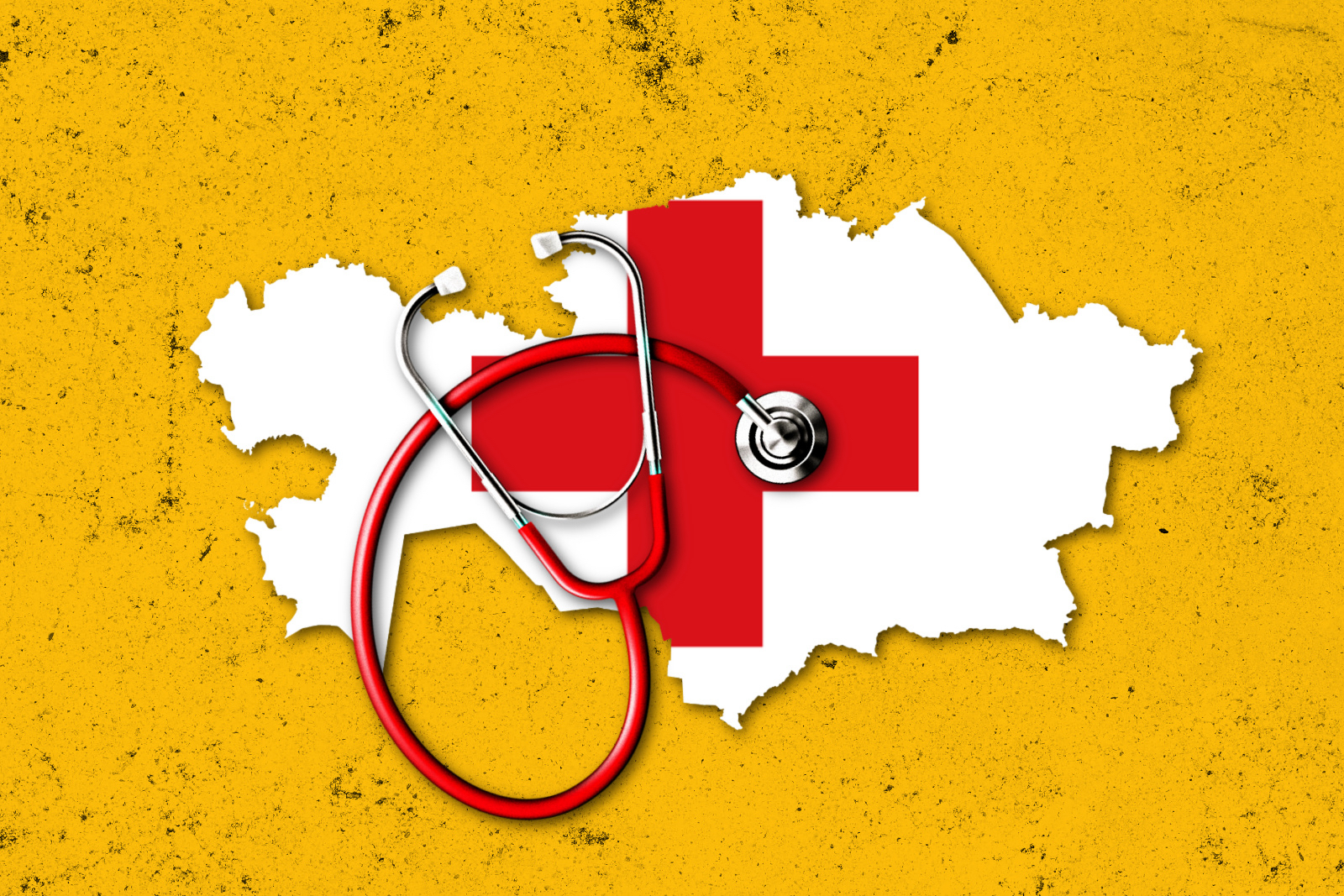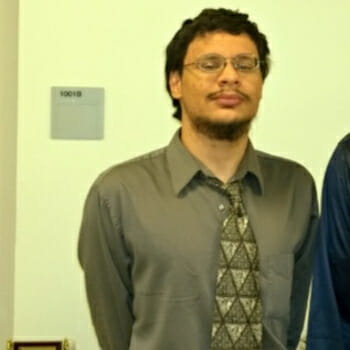
The Challenges of Becoming a Doctor in a Former Soviet Republic
Over some Tashkent tea at a restaurant in downtown Almaty, Kazakstan’s largest city, I talked with a 7th-year medical student nearing the end of his studies, in oncology, at a research institute. In our English language discussion, we talked about the state of healthcare and higher education in Kazakhstan. The precocious doctor-in-training hails from a family rooted in medicine. I began our conversation by asking for just a general overview of Kazakh healthcare.
Our conversation, lightly edited for clarity and grammar, is below.
Kazakh healthcare is a strange homunculus. One of the few good things about the Soviet Union was preventative care. Due to military medical workers of the Second World War, [Soviet healthcare] was more pragmatic and more practical but very human-centric. For example, during Soviet times, medicine was free out of pocket.
Yeah.
Yeah, the Kazakh system is rife with corruption. Maybe that’s why the salaries of doctors aren’t very high.
Let’s talk about post-Soviet times.
So, in healthcare, there was a total collapse. The government tried to build a European healthcare system, but it collapsed. Students lost any motivation because salaries were extremely low. And the corruption element. For example, my opinion is that you cannot be a doctor if you don’t have the ideal mindset. A lot of students are just paying for a diploma or using [bribes].
I think one of the biggest problems is in the educational system. First of all, the people don’t understand how “the sausage is made.” I mean the system, the European system of education, and they try to lead with that. How does it work? I still don’t know.
The second problem I think is the system itself. It’s very centralized. There is only one organization/agency in Astana that deals with purchasing medicine. I think this may be inefficient. This affects the quality of medicine being imported.
COVID exposed all the troubles with the system. The people who make big decisions in medicine don’t have a medical background. The managers try to make the doctors work. My father for example, he’s a pharmacist. He said that the problem with medicine is that, “the pharmacists are trying to cure people and the doctors are selling [the] drugs.” That’s the inherent problem.
And that’s how the situation was when the pandemic hit. ‘Effective managers’ are ineffective. There were just not enough hospital beds.
Could you say the phrase again that your dad says?
“The pharmacists are trying to cure people and the doctors are selling [the] drugs.” There is a system in the hospitals that pharmaceutical managers are trying to convince doctor’s to sell patients unneeded drugs and stuff like that.
Do you think there’s a conflict of interest with the doctors and pharmacists?
In a lot of hospitals, I mean the state hospitals, there is very a big conflict in the hierarchy. Hospital administrators are untouchable. Doctors and nurses don’t have the straight communication lines, so they don’t communicate with one another. So, the space becomes too toxic for the doctors and nurses. Administrators push fees and firings are an issue.
Would you say the government interferes with hospitals?
Yes, I would.
Why do you think that is?
Because the system is built like that. It’s not a transparent system. When a doctor tries to find a new solution, he cannot do that by himself. This centralized system is not very open to change. For example, when the war in Ukraine started along with Russian sanctions, I was working in a private clinic. We couldn’t find the material for sutures or implants because a lot of supplies were coming in from Russia.
Most medicines come here from India, Russia, and Belarus. There are local pharmaceutical factories, but to be honest, it’s better to use herbs than locally produced drugs.
Kazakhstan doesn’t test imported drugs?
No, not at all. Maybe some medications like lidocaine. The government is not interested in developing a domestic pharmaceutical industry because it’s cheaper to buy generic drugs from abroad, even from Russia and Belarus.
That is surprising because I was told by Amanat Party members that Kazakhstan wants to increase domestic drug production.
Maybe, I didn’t know. But 30% is what I told you about. The premium drugs need to be produced here. 30% for a country of 19 million people is inadequate.
Does the state support medical students?
It’s a hard time because the old system of education was mostly destroyed, and the new educational system still doesn’t work very well. For example, I was studying at a private university and there was a lot of troubles with the equipment. For example, there is a 2015 law that outlawed medical cadavers. We don’t have cadaver courses because it’s prohibited. I think it’s because of the [Muslim] religious lobby.
What about prosthetic cadavers?
We could use them, but they are not realistic.
What are some other difficulties students face?
The first one is motivation. There are two facets to that. The teachers are not very interested in further studying. Maybe 70% of the teachers are not interested in studying. For example, when I had a course in physiology, there was a person who read us course material from 1997, even though this was 2015. Another problem is that teachers are not interested in fair grading. The teachers lower your marks unless you bribe them. That’s my opinion on some of my colleagues.
Did the government initiate positive changes due to COVID?
There were positive changes. The government understood that there were too many people dying, so we needed to do something with healthcare. With COVID, salaries were increased, bonuses for doctors and nurses who work in COVID wards. There are also social programs for young doctors.
I have two points. When the government pays you, you have to work at least three years in the place where they send you. Secondly, there is also a program where the government pays you to go into the countryside. It’s not a lot, maybe $5,000 or $6,000 as a one-time bonus. Doctor salaries are not very high. I mean, a talented young specialist can make $500 a month.
I make more delivering food part-time in New York.
Yes. When I was studying in Germany, I told a colleague from Argentina how much money a doctor earns in Kazakhstan, and he was shocked.
But it does depend on the situation. For example, when you specialize in, say, becoming a CT eye doctor, you can earn something like 1,500,000 tenge [$3,200]. But you need to have experience. When you work in the beauty industry, in private medicine, you can earn good money, but you need experience. And in public health, in cosmetology, it’s something like $800. It is not a good money.
Imagine a civilized country without heart surgeons, brain surgeons. For example, endoscopists make like $1,000. General doctors make around 250,000 tenge, something like $530.
What is your field?
My field is oncology and breast cancer. But I want to go into plastic surgery. When I finish my specialization in oncology, I will go to plastic surgery. For now I’m not working. I mean, I’m still studying.
It’s very different from the American system. When you get your specialization, the hospital pays you. You can be on duty for 36 hours. I have some friends who work in the American hospitals. And here the people are paying for getting a specialty they pay money for that. The government pays for my education for now. And I receive a stipend, it’s something like $252.
You want to get into cosmetic surgery because it pays more?
With plastic surgery, because of the pace, there is space for the art of the craft. When you make other people more beautiful, in their understanding of that, it is good.
When I was younger, I was too idealistic because I was like, “I want to save a life.” I became too pragmatic, but that’s why I study breast cancer because I still want to save lives.
Most plastic surgeons in the U.S. are rich.
Yeah, I know. I mentioned that there was a clinic where I worked. There were a lot of American patients. When I say a lot, it’s something like five or six who came here to get plastic surgery because it’s cheaper. In the U.S., it’s something like $40,000 for breast augmentation. Here, maybe $4,000. Maybe there’s also some differences between the Western and the Kazakh system of public health. Here, there are some pharmacies where you can buy antibiotics without a prescription.
Are Kazakh doctors leaving for better money?
It’s a crisis but not at the moment. I think that in 20 or 30 years there will be a crisis because the old school doctors will start to retire or die. Will the new-school doctors have enough endurance to study? If someone in the near future has an opportunity to leave, they will leave. A lot of people training to become doctors went to Russia, then to Europe. They will go away and for now it doesn’t feel so impactful. But in 20 or 30 years it will if the current system doesn’t change.
What are some changes you would propose?
First of all, the administration. It should be totally changed, in my opinion. People who don’t have a clinical education and clinical experience should not manage the healthcare system. That’s a very big problem.
For example, a friend of mine was studying general medicine. He’s now finished his PhD. He can write recommendations for me, the practical doctor, and he doesn’t work in practical medicine. That’s a problem.
Second of course is the salary. A good Arabic saying goes: “The good doctor should be well dressed, have a good horse and have rich rings on his fingers.” Because thinking about materialistic concerns should not distract him from thinking about his patients.
It’s very hard. You risk burnout when you have to work a lot and you need to think about how to get new dresses for your kids. You’re thinking about how to pay your taxes. That’s a problem. The government says that we don’t have enough money in the budget to raise salaries. I’m not sure about that because I saw how much they spent on the elections.
What suggestions would you have for improving medical scores?
First of all, give more space for practice for the students. Get cadavers back in classes. It’s very important. Second, maybe change some of the system of education. For example, I have been studying seven years, and I’ve only had three weeks for neurology. Three weeks for the neurology! Yes, I understand. It’s very big specialty, but come on, three weeks?
Also, one of the most important is better medical English because most of us are studying in Russian. But books in Russian are mostly just copy-pasted from Western textbooks.
It seems like most of the medical innovations are coming from the West.
Yes. It was easy for me to read the top English medical journals and all that. But for most of my classmates, who can’t read or write in English, it’s terrible.

